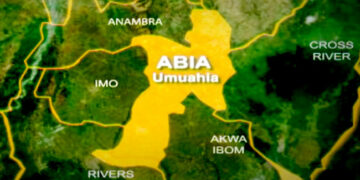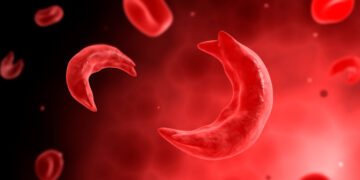You’ve heard it a million times: Drinking water is one of the best (and easiest) ways to care for your health. Our bodies are 60 per cent water, after all.
So, it only makes sense that babies need some of that good ol’ H2O, too … right?
Perhaps surprisingly, that’s not the case. Babies under 6 months old shouldn’t drink water. And giving water to a little tot can cause some big troubles.
The American Academy of Pediatrics is pretty strong with their recommendations that babies in the first several months should only have human milk (breast milk) and/or formula. Not water,” says pediatrician Joanna Buckingham, MD. “Babies get all the hydration they need from formula and human milk — more than that can be risky.”
Why can’t babies have water? And when can you start introducing water to your baby? Dr. Buckingham explains.
Why Babies Can’t Have Water
It can be tempting to want to give your baby a sip of water. Maybe it’s a hot summer’s day and they seem extra thirsty. Or maybe you’re running a little low on formula and trying to stretch it a bit longer. So, you consider adding more water than the package calls for.
But Neither Is A Good Idea
Human milk or formula (when prepared according to the directions on the package) contain plenty of water to keep your baby healthy. Human milk is about 87 per cent water. Formula is about 85 per cent water.
Unless advised by a child’s healthcare provider, like their pediatrician, adding more water to the equation isn’t just unnecessary — it can be dangerous. Most little baby bodies just aren’t ready for any extra water.
What are the risks of diluting formula or giving a baby a drink of water? Dr. Buckingham shares the two big reasons to keep your baby water-free.
Water Fills Up Little Tummies
One of the reasons water is such a perfect drink for big people is that it provides the hydration your body needs without any extra calories.
But babies need those calories. They need the nutrition they get from human milk and formula. When you give a baby water, it takes up valuable real estate in their itty-bitty belly. For context, a 1-month-old’s stomach is about the size of an egg. It fills up fast.
Giving your baby water means less room for human milk and formula, which contain the vitamins, minerals and proteins babies need for healthy growth and development.
Giving babies water dilutes their calorie intake,” Dr. Buckingham clarifies. “Proper weight gain is such an important indication of your baby’s health in those first few months. We want them to be getting those calories.
Risk Of Water Intoxication
Even more importantly, giving babies water can throw off the delicate sodium balance in their bodies, which can be very dangerous.
When you give a baby water, it can dilute the sodium in their bloodstream. That can cause a condition called hyponatremia, or what some people may call ‘water intoxication,’” Dr. Buckingham says.
Water …. intoxication? Yes. That’s a real thing. And it can be very dangerous. Let’s break down how it happens.
Among other things, your kidneys help remove excess fluid by filtering it into your bladder (aka, allowing you to pee it out). That essentially keeps your system from flooding with water.
Adult kidneys are about the size of a large avocado, so healthy, grownup kidneys can typically keep up with removing any extra fluids we take in.
Newborn kidneys, on the other hand, are about the size of a grape. So, it’s easier for your baby’s kidneys to get overwhelmed. And it doesn’t take much for your baby’s body to get more water than it can handle.
When a baby’s (or adult’s) body is overloaded with water, it can begin to dilute their blood. That’s when things get dangerous. Because waterlogged blood lowers the sodium content in your body.
When your baby’s sodium content goes too low because of taking in too much water, it can lead to serious symptoms, like seizures and even coma and permanent brain damage.
When Can Babies Have Water?
Typically around the time your baby is 6 months old, their healthcare provider will start suggesting a bit of water as a part of their diet.
Usually, that’s the time parents can start to offer babies a bit of water, but it should be in small amounts at a time,” Dr. Buckingham advises. Six months is typically the age that babies start to eat some solid foods, too.
Between 6 months and their first birthday, they can gradually drink more water, until it becomes normal part of their routine.
The bottom line
Giving your baby a bit of water on a hot day might not seem like a big deal. But avoid the temptation if your baby is younger than 6 months. Instead, if your baby is extra thirsty, offer up human milk or formula. It has all the water (and nutrition) they need — without the risk.
Copied from: https://health.clevelandclinic.org











